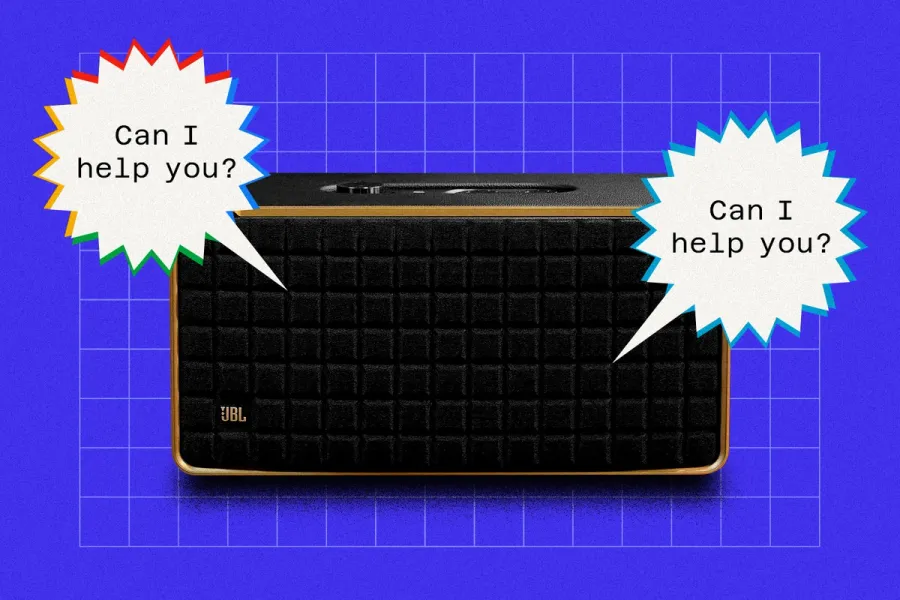
11 amazing things you can try with AI
September 14, 2023
Gadget guru or digitally distracted? Which of these 5 tech personalities are you? USA TODAY
September 14, 2023Amazon Alexa and Google Assistant may soon be tag-teaming their roles as kitchen DJ or in-home meteorologist.
The tech giants announced this week that a forthcoming line of speakers—Harman’s JBL Authentics 200, 300, and 500—will be able to host both voice assistants simultaneously.
While previous devices required users to choose between different voice platforms, the move marks the first time multiple assistants can coexist, according to the companies.
That functionality lets users toggle between features from each assistant—Google’s search or Amazon’s shopping, for instance—or tap a new directive called Universal Device Commands (UDC) to end an action, allowing users to, essentially, command that the speaker knock it off, regardless of which assistant initiated the action (think timers and music).
Playing nice
While device makers and tech giants have long discussed voice interoperability as a possibility, technical hurdles and issues of company coordination stood in the way.
When it came to pairing up Alexa and Google Assistant, technical challenges included using hardware and components designed to work with both assistants, developing software rules that ensure the voices won’t talk over each other, and ironing out UDC mechanics across both platforms, according to Mark Yoshitake, GM and director of Alexa developer technologies and experiences.
“Typically, we’re integrating a single assistant on a single device with components like microarrays and chipsets that are made with the idea of a single assistant,” Yoshitake said. “Making both of those work really well with the right type of memory footprints, optimizing those things, making sure the latency and the overall experience felt really snappy, was definitely something that we really focused on.”
As far as efforts to mitigate interoperability woes, the biggest movement in recent years has been Matter, a smart-home interoperability standard that companies including Google and Amazon have signed onto, Insider Intelligence analyst Jacob Bourne said.
“It’s basically a common technical language that all the different devices can work on,” he explained.
And while it’s not the only push for interoperability—Amazon spearheaded an alliance called the Voice Interoperability Initiative in 2019—it’s the most important, he added.
Google, meanwhile, has been more hesitant to move toward voice assistant harmony. In a 2021 congressional antitrust subcommittee hearing on the topic, Google Senior Public Policy Director Wilson White said there were “technical challenges” that prevented its assistant from being used with others on the same smart speaker, according to Protocol.
Marissa Chacko, director of product management at Google, said the new collaboration with Amazon would help the company evaluate whether it wants to move further into interoperability.
“We’ve always been committed to customer choice. And I think this is an experiment where we want to see, ‘How does this go? How does this resonate with our users? And are they interested in this type of experience?’” Chacko said.
Limited growth
According to a 2022 Insider Intelligence data forecast, smart speaker growth has slowed and is hovering at around 30% market penetration. Based on that stagnation, Bourne said there are likely a few financial reasons behind the partnership.
“Having more flexibility about how one particular device gets used could, on the whole, increase user engagement,” Bourne said.
Bill Ray, a VP analyst at Gartner, had a more skeptical take. “I’m not clear why you would want to [have a multi-assistant speaker],” Ray said. “Most people have chosen an ecosystem and stick with it.”
The partnership might be a chance for the companies to “demonstrate they’re playing nicely together,” but it could also be a play for smart-home hegemony, Ray added.
“The network operators, the Verizons and the AT&Ts, think that the central place for a [smart-home hub] is in the router…obviously Amazon and Google think it should go in your smart speaker,” he explained.
“I’m wildly hypothesizing here, but I suspect that the idea of having a hub that works with both Amazon and Google has to do with Amazon and Google trying to ensure that Verizon, AT&T, or Vodafone or whomever, is not taking away that business,” Ray said.
But, like many things in the tech world, the collaboration could also be about beating Apple, Bourne said.
“When we’re talking about brand loyalty, I think Apple does have that edge on both Google and Amazon,” he said. “In that sense, that lends more to the argument that this helps both Google and Amazon counter that Apple/Siri brand loyalty…because they’re offering flexibility and options.”
And then, of course, there’s AI. Excitement around generative AI could help to boost consumer interest in voice assistants, Bourne said, pointing to efforts to use generative AI to improve assistants, including rumored updates to Siri.
“I think it’s also a sign that Google and Amazon are cognizant of the fact that there’s new fresh competition on the voice assistant front because of generative AI,” he added. “There’s a lot happening in the voice assistant space, and this is partly Google and Amazon’s way of trying to stay ahead of the competition.”
Source: https://www.emergingtechbrew.com/stories/2023/08/31/amazon-google-smart-speakers




